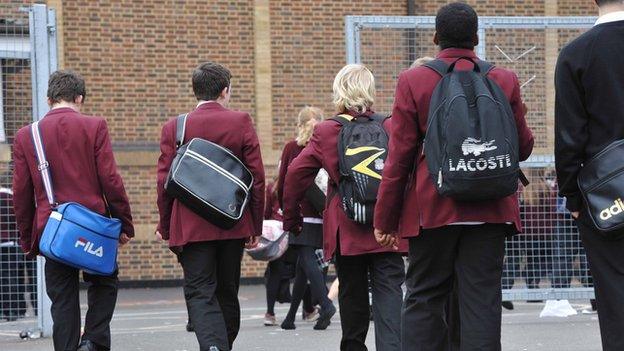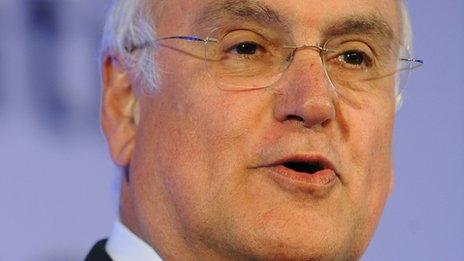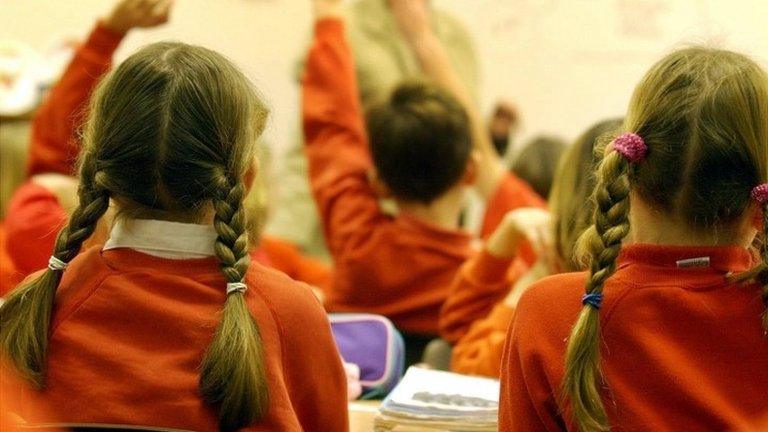Mixed results in study of disadvantaged pupils in academy chains
- Published

Academies were first set up to assist disadvantaged pupils
Many academy chains in England are struggling to improve the results of disadvantaged pupils, a report says.
The Sutton Trust study, external of 34 organisations which sponsor multiple academies says poor pupils in 22 of them performed significantly below the mainstream schools average in 2014.
But disadvantaged pupils in 11 chains outperformed those in mainstream schools at GCSE, the charity says.
Ministers said academies were transforming millions of pupils' lives.
In-depth analysis compared the results at 156 academies between 2012 and 2014 in 34 academy chains with those of mainstream state-funded schools.
The academies were chosen because they had been open and had GCSE results for the past three years.
'Harming prospects'
The report, Chain Effects 2015, highlights how a handful of top performing chains, such as Ark and Harris Federation, with a large number of schools, were leading performance in the academy sector.
Results for disadvantaged students in these academy chains were at least 15 percentage points higher than those in mainstream schools, the report said.
But in many more academies, disadvantaged pupils did worse than those in mainstream schools. One chain performed at the mainstream average for disadvantaged pupils.
The results are significant because the government sees its academies programme as its main engine of improvement.
"Academy sponsorship is not a panacea," the report said.
Report author Prof Becky Francis said: "There is very significant variation in outcomes for disadvantaged pupils, both between and within chains.
"Some chains continue to achieve impressive outcomes for their disadvantaged students against a range of measures, demonstrating the transformational impact on life chances that can be made.
"However, a larger group of low-performing chains are achieving results that are not improving and may be harming the prospects of their disadvantaged students."
'End of spectrum'
The report calls for new, clear and more rigorous criteria to be applied by the Department for Education (DfE) when sponsors are approved and commissioned.
"New chains should not be allowed to expand until they have a track record of success in driving improvement in their existing academies," it said.
"The government must not ignore the negative impact that a number of chains at the other end of the spectrum are having on school quality and (consequently) the life chances of the young people they serve," it added.
And it called for "the DfE to ensure transparency as academies are moved between chains" when standards were not good enough.
A DfE spokesman said: "The academies programme has transformed the lives of millions of pupils, particularly those from disadvantaged backgrounds, as this report shows.
"We are already working with many excellent academy sponsors and are recruiting more to pair with struggling schools so every child has access to the excellent education they deserve."
He added: "We know that for some academies there is more to do - which is hardly surprising when many of these are most likely to include sponsored academies which have a history of low performance in their former schools."
- Published27 January 2015

- Published23 January 2015

- Published17 September 2014
